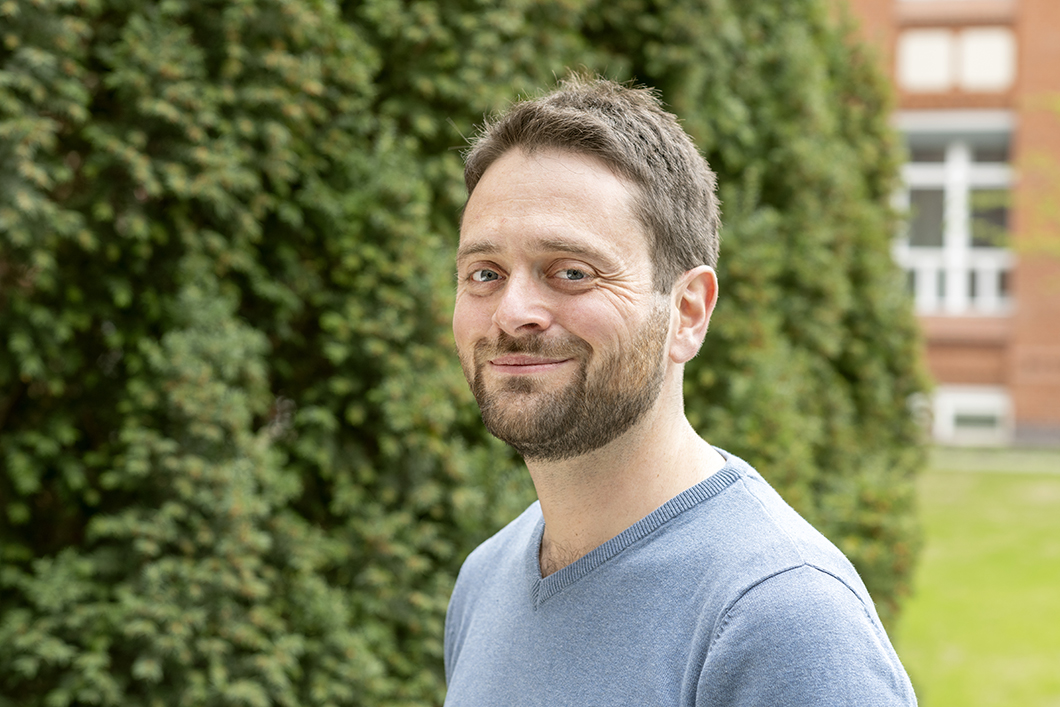
Dr. Marc Benjamin Hahn, Physical and Chemical Analysis of Polymers Division
Source: BAM
Interview series "Introducing People@BAM"
Dr. Marc Benjamin Hahn, Physical and Chemical Analysis of Polymers Division
Marc, tell us a little bit about yourself. What did you do in "your life before BAM”?
I studied physics at "Freie Universität Berlin" with a focus on surface science and magnetism. During this period, I had the great opportunity to spend some time abroad, at the "Universidad de Cantabria" in Spain and "Alexandria University" in Egypt. From a personal as well as professional perspective, both stays were very enriching. To live, learn, work and discuss in such diverse social and cultural surroundings, provided me with a huge variety of valuable experiences and new insights.
What inspired you to pursue a career in science?
The main motivation to study physics was clearly to understand "Was die Welt im Innersten zusammen hält". However, after a while it became clear to me, that each newly discovered answer provides you with additional, even more challenging questions. Thus, the additional motivation, to use science as a tool to solve (at least some) problems in society, became stronger. Which finally made me become involved in radiation biophysics.
Do you have any role models and, if so, which ones?
I wouldn’t say that I have a specific role model. But there are many people I admire for certain personal traits, which I try to take as a good example.
What does your research focus on, and what excites you most about this topic?
My current research focus is on the interaction of biopolymers, such as DNA and proteins, their degradation by radiation, and the underlying physical and chemical mechanisms. Due to the interdisciplinary nature of this topic - which is located at the intersection between physics, biology and chemistry – I had to learn to speak the “language” of the different communities. The broad focus, the interesting and challenging questions to answer, and the possible positive impact on society is what motivates me most.
Why research at BAM? What do you like most about your work here?
Due to its broad scope and well-equipped laboratories, BAM is a great place to do interdisciplinary research, where the access to state-of-the art technology is crucial. The possibility to have these at hand, in combination with competent and helpful colleagues, is one of the things I like most.
Have there been any obstacles or challenges in your career so far? And how has COVID-19 affected your research?
The uncertainty, which was predominant at the beginning of the pandemic, made long-term planning of experiments and projects quite challenging. Luckily, this was quickly overcome by the flexible regulations and the support of plenty of colleagues. A similar uncertainty, regarding the long-term perspectives in research, is inherent to the employment situation of many early-career researchers with fixed-term contracts. This uncertainty often prevents them to tackle the really challenging questions in science, by forcing one to focus on the more solvable problems while not providing enough time needed to answer the “big questions “. For me, this was partly solved, after being awarded with a DFG grant to investigate “Ionizing Radiation Damage to Nucleoprotein Filaments involved in DNA Replication, Recombination and Repair”, providing me with the opportunity to focus my attention for a couple of years on some of these “big questions”.
What do you like to do when you’re not doing research?
After a long and focused day in the lab, I like to relax with good friends enjoying a nice drink. When I have a little free time, I like spending it in the nature, either on a hike or a sailing boat.
If you should describe your job at BAM in one sentence – what would that be?
Always different.


